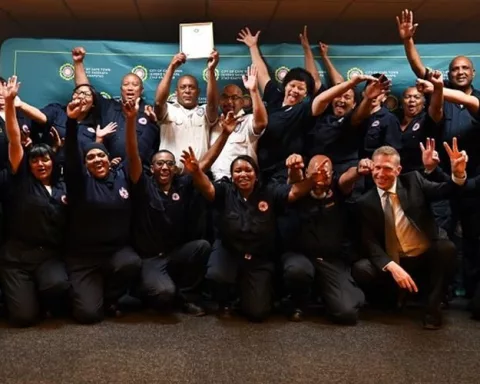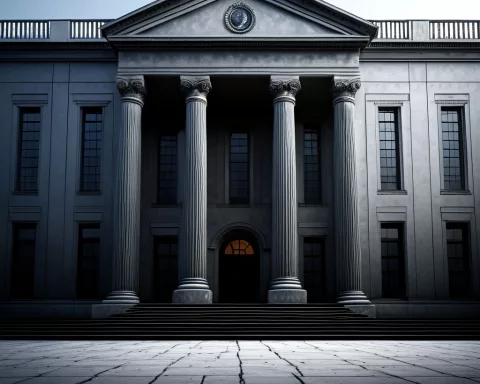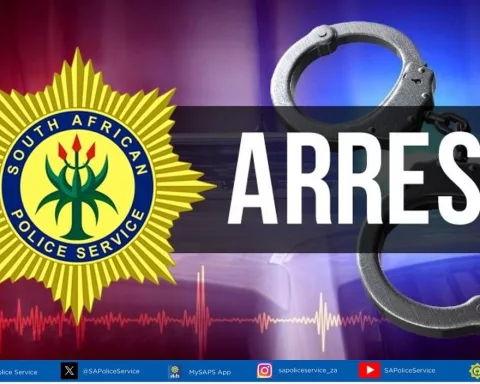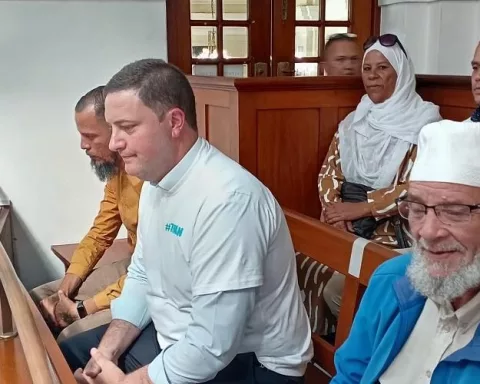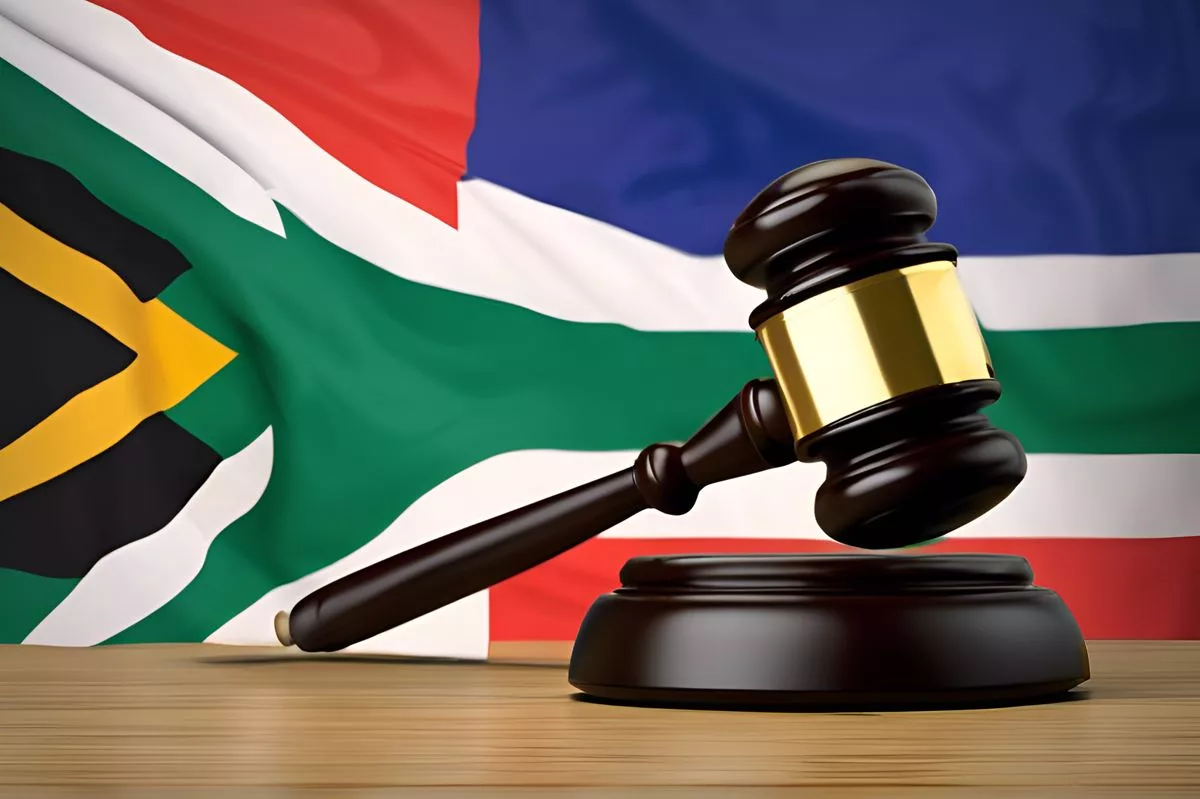Area South is facing an unprecedented crisis of vandalism leading to power outages and destruction of the power infrastructure. The city is deploying private security forces, alternative lighting solutions, hi-tech solutions, and a Law Enforcement Unit for Energy to counter the problem. Each resident can contribute by reporting suspicious activities to law enforcement agencies or the City’s Fraud Hotline. The city is coming together to build a stronger and more resilient community in these troubled times.
Battling an Unseen Crisis in Area South’s Power Infrastructure. The city is witnessing an energy services battle of unprecedented scale due to persistent acts of vandalism, triggering destruction on the power infrastructure. Private security forces, Law Enforcement Unit for Energy, hi-tech solutions and alternative lighting solutions are being deployed to counter the widespread problem. Each resident can contribute by reporting suspicious activities around electrical infrastructure to the City’s law enforcement agencies or the City’s Fraud Hotline.
Battling an Unseen Crisis in Area South’s Power Infrastructure
The expansive urban expanse of Area South, incorporating the varied locales of Mitchells Plain, Gugulethu, Wynberg, and Philippi, is witnessing an energy services battle of unprecedented scale. The city has been subjected to persistent acts of vandalism, spiralling in conjunction with regular power outages, triggering a ripple effect of destruction on the power infrastructure for which the city was not prepared.
The incessant power outages have placed the city’s energy structure in jeopardy and indirectly spawned an uptick in theft and defacement. The City’s committed energy squads are confronting these extraordinary conditions, crafting ingenious strategies to reestablish services and counteract the rising backlog of service demands. Despite the intimidating challenges, they are not impossible to overcome.
According to Councillor Beverley van Reenen, the City’s Mayoral Committee Member for Energy, these unanticipated trials present the energy teams with a chance to innovate and incorporate new methods to boost service delivery. The objective is not merely to provide services promptly but also to rapidly eliminate backlogs. The existing situation calls for the city to band together to guard community infrastructure and improve service delivery.
Tackling Vandalism Hotspots through Innovative Solutions
Mitchells Plain, along with Gugulethu, Wynberg, and Muizenberg, has been pinpointed as a key zone for metro defacement. Out of more than 4,154 fault requests, 15% relate to recurrent vandalism and pilfering of infrastructure. To counter this widespread problem, the energy teams are considering a range of strategies.
One such strategy comprises the deployment of private security forces to protect the city’s power structure. Moreover, an exclusive Law Enforcement Unit for Energy is being founded to lessen the threats posed by the ongoing crisis. Acknowledging that electrification isn’t feasible for all communities, alternative lighting solutions are being unveiled for communities unable to receive electricity, providing a glimmer of hope in these tough times.
Recognizing power in unity, the city is also empowering local neighborhood watch groups to bolster local security. Furthermore, in the midst of rapid technological progress, hi-tech solutions are under review to restrain unchecked defacement. These technological solutions not only provide new methods of safeguarding infrastructure but also expedite infrastructure replacement through the inauguration of satellite equipment depots.
Stepping up Public Lighting and Streamlining Service Requests
In addition, new public lighting contractors are being selected to proactively tackle the lighting issues, and an increased number of artisans are being employed to speed up the resolution of fault requests. Operational modifications to the escalation of requests are also being implemented to smoothen the management of future service requests.
The formidable challenge of combating this crisis does not rest solely on the shoulders of the City’s energy teams. Each resident of Area South can contribute by quickly reporting any suspicious activities around electrical infrastructure to the City’s law enforcement agencies or the City’s Fraud Hotline. The SAPS, being the primary authority for crime prevention, remains a vital resource for reporting such activities.
Coming together as a Resilient and Innovative Community
In the midst of these troubled times, the City of Area South embodies resilience and innovation. The current crisis, although intimidating, offers a unique opportunity for the city to unite and build a stronger, more prepared community. As the city gradually illuminates, one street after another, the spirit of Area South continues to glitter, undaunted by the crisis at hand.
1. What is happening in Area South’s power infrastructure?
Area South is facing an unprecedented crisis of vandalism leading to power outages and destruction of the power infrastructure.
2. What measures are being taken to counter the problem?
The city is deploying private security forces, alternative lighting solutions, hi-tech solutions, and a Law Enforcement Unit for Energy to counter the problem.
3. How can residents contribute to solving the problem?
Each resident can contribute by reporting suspicious activities to law enforcement agencies or the City’s Fraud Hotline.
4. Which areas have been pinpointed as key zones for metro defacement?
Mitchells Plain, Gugulethu, Wynberg, and Muizenberg have been pinpointed as key zones for metro defacement.
5. What are the technological solutions being reviewed to restrain unchecked defacement?
Hi-tech solutions are under review to restrain unchecked defacement. These technological solutions not only provide new methods of safeguarding infrastructure but also expedite infrastructure replacement through the inauguration of satellite equipment depots.
6. How is the city empowering local neighborhood watch groups to bolster local security?
The city is empowering local neighborhood watch groups to bolster local security by recognizing the power in unity.


